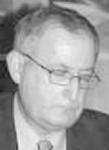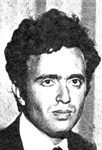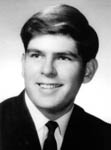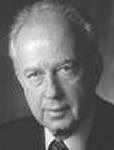|
Enforcer or Loose Cannon?
I have put aside till now discussion of Dr. Yoram Dinstein, the
Office representative in the New York Consulate, because his role in
my story is rather unsavory. For the first couple of years that Dinstein
was at the consulate, our relations were casual: little more than a
perfunctory exchange of greetings at a national or regional meeting.
So it came as a surprise when, prior to the April 1968 American
Jewish Conference on Soviet Jewry, I received a phone call from him
at my NASA office. Without pretext, he launched into a tirade:
accused me of inciting Hillel Levine, a Jewish Theological Seminary
student, to mount a disruptive protest at the upcoming AJCSJ
meeting. (A ludicrous accusation, as Hillel was manifestly his own
person, see interview with Hillel, below.) He wound up with a
threat: “I shall see to it that my government destroys you.” It was
surreal. I responded calmly as I could, “you have no right to
threaten anyone with destruction” — and hung up.
The next unpleasantness from Dinstein occurred March 1, 1970,
following a two-day Midwest
Regional Conference on Soviet Jewry, held in a downtown
Cleveland hotel. Since the airport was on the way home, I proffered
a ride to Dinstein and three other out-of-town attendees: Harold
Miller, a Chicago lawyer; Zev Yaroslavsky, Chairman, California
Students for Soviet Jewry; and Abe Bayer, Coordinator, AJCSJ. Seated
in front was Dinstein, and between us, my 15-year-old daughter,
Miriam, who had attended the conference; the others were in the
rear. As we neared the airport, Dinstein — quiet all along — blurted
out, “You people are doing everything you can to destroy the Soviet
Jewry movement.” Mystified, I asked what he meant. He said, “I hear
you are setting up a new organization.” “Yes,” I answered, “it's no
secret.” “If you go ahead with this,” he declared, “I’ll see that
you are destroyed — all of you.” A hush. Thinking of my young
daughter, I turned to him and said sharply, “Yoram, shut up.” And he
did. An uneasy silence followed, unbroken till we reached the
terminal and made hurried goodbyes.
For me, Dinstein’s threats were tiresome hyperbole. Yet, for the
vulnerable, there were consequences. I know two students activists
who suffered from his ire. One was
Hillel Levine
(mentioned above). Believing Hillel had defied his diktat, Dinstein
retaliated by attempting to poison the student’s standing with his
mentor at the Jewish Theological Seminary, Dr. Abraham J. Heschel.
To read an interview with Hillel touching on his fraught relations
with Dinstein, click here.
Read the interview.
 |
 |
 |
 |
| Yoram Dinstein |
Hillel Levine |
Zev Yaroslavsky |
Yitzhak Rabin |
Zev Yaroslavsky, a UCLA student and head of the California
Students for Soviet Jewry was another who ran afoul of Dinstein. In
a letter to me Zev wrote that Dinstein phoned him April 16, 1970
with an ultimatum: drop the association of your California student
group with the Union of Councils for Soviet Jews or in two to three
weeks you will no longer be working for the Federation. Zev ignored
the threat; and, on April 27th, his boss at the Greater Los Angeles
Federation informed him that his employment was terminated. To read
the entire letter,
click here.
After this last incident, I had more than enough of Dr. Dinstein.
So, for the record, I wrote to Israeli Ambassador, Yitzhak Rabin,
concerning Dinstein’s manifold threats and acts “in a manner to
suggest interference by your government in American Jewish affairs.”
Rabin acknowledged receipt of my letter three weeks later. To see
the Rabin correspondence, click here.
next > Office
Overtures: Played Dolce |



